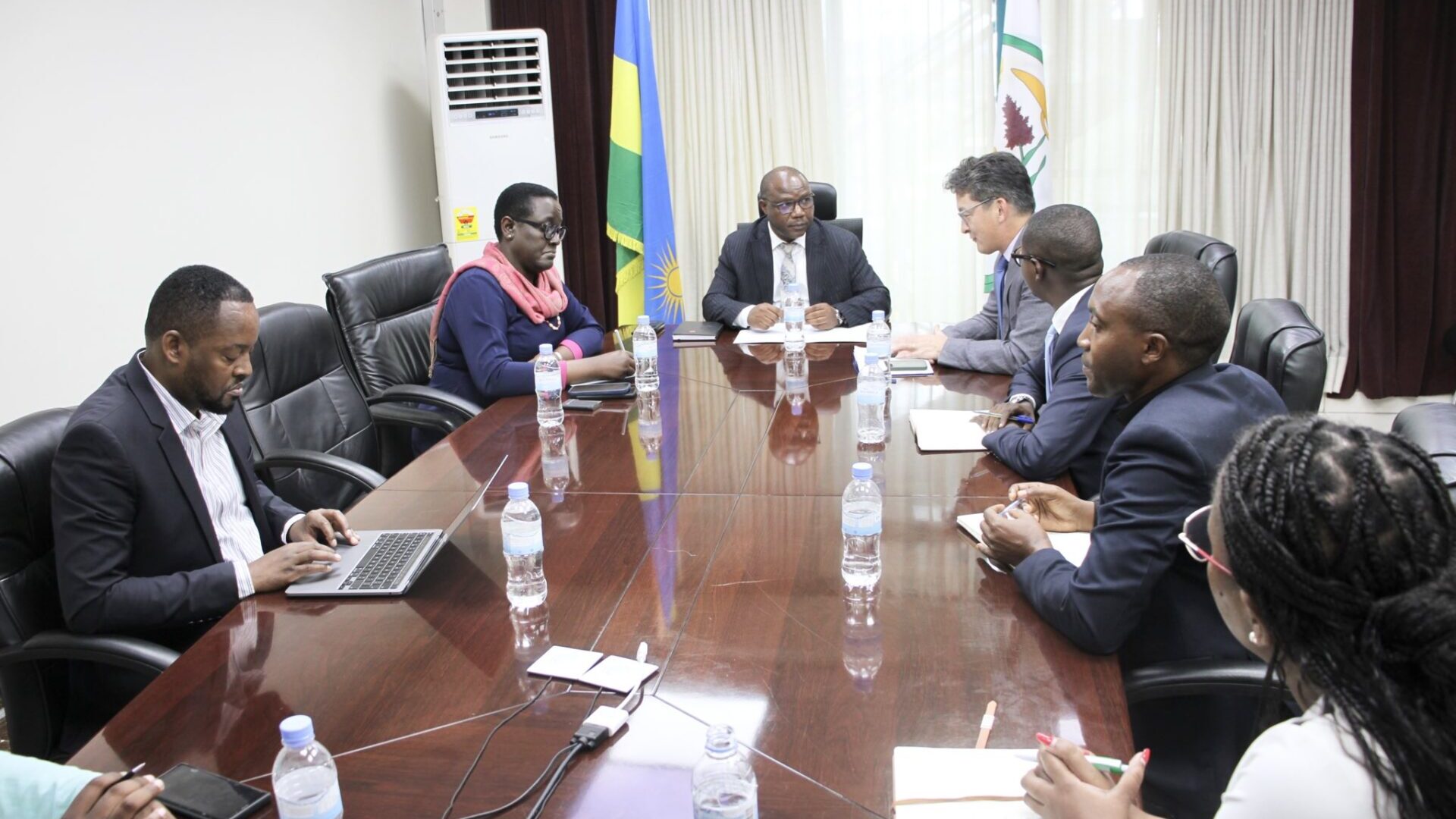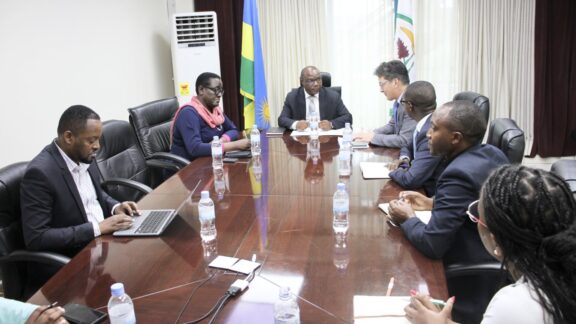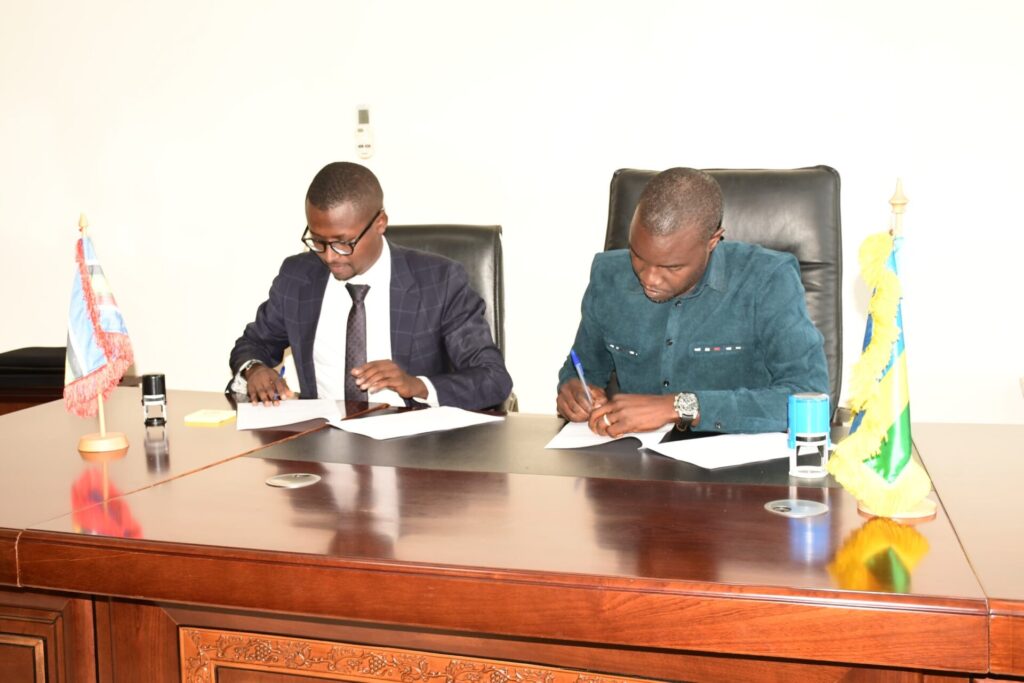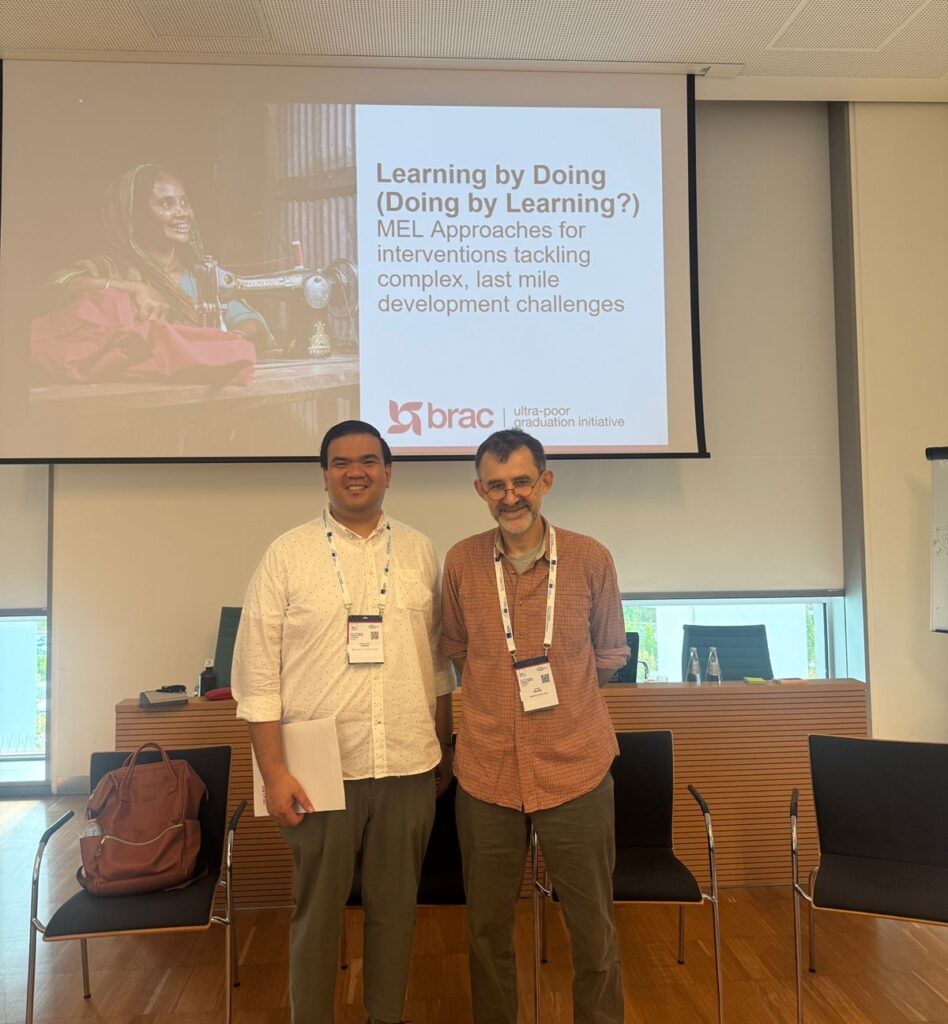Caption (image above): Members of the BRAC team, led by Managing Director, Greg Chen, met with Minister Musabyimana and Minister Kayisire with the Ministry of Local Government (MINALOC) in Rwanda. The meeting reviewed the progress of collaboration for the National Strategy for Sustainable Graduation.
In recent years, momentum has grown to take evidence-based solutions to scale through governments. In today’s global development landscape, characterised by deep funding cuts and increasing needs, this strategy has never been more relevant. Through eight years of working alongside governments we’ve learned there are clear pathways to success—and pitfalls to avoid.
In 2020, our organization received a large and flexible Audacious Award to scale up the Graduation approach through government partnerships. This substantial investment recognised two realities: first, that Graduation is among the most evidence-backed interventions for sustainably alleviating extreme poverty, and second, that the need for solutions is urgent. In 2024, despite global progress, about 1 in 10 people worldwide still lived in extreme poverty, lacking basics like clean water, sanitation, and enough food to eat.
A principle underpinning our scaling theory is government leadership. Governments are uniquely positioned –– with sustained funding and the political mandate –– to implement programmes reaching millions. Even the most seemingly reliable external funders and partners come and go—a reality the global development community is feeling acutely right now.
Yet, let’s be honest, working with government isn’t always easy. Discovering what works has entailed years of trial and error, including important failures––and we’re still learning. In this article, I share three criteria for success we have found work for us––and may work for others––to foster the foundations for successful government-led scale.
Learning from failure: playing telephone and whack-a-mole
Two years ago, we faced a difficult decision, whether to continue or stop our work in Pakistan. Having worked in Pakistan for many years, I believed I understood the context well. The conditions seemed favorable: a large need, existing government social programmes, and capable partners. Yet after 18 months of on-again-off-again negotiations, a key partner finally levelled with us and shared unwelcome news, “The government just wants to do other things.” Sometimes even the evidence cannot alone generate political will.
Our experiences in other countries highlighted different challenges. In some places, we had the political will, but the program implementation was a mess––we’d start with a high-quality demonstration then watch as it got progressively diluted and misunderstood as it moved through different regions and government departments, like a game of telephone. We grappled with slow decisions, difficulties in recruiting frontline coaches, and logistical challenges, such as coordinating livestock delivery among disconnected government departments. Each time we seemed to resolve one issue, another barrier popped up like a game of whack-a-mole, creating a seemingly endless cycle of complications.
Scaling foundations: a success trifecta
We kept forging ahead, tinkering, and learning over the next few years. We got more adept at reading cues––learning that enthusiasm and verbal commitments need to be followed by staff and budget allocations to be set in stone. And in South Africa, India, and Rwanda, the partnerships and implementation finally started to click. This experience helped us understand what elements are foundational for us to scale through government.
The framework we now use, influenced by Imago Grassroots’ book Scaling up Development Impact represents for us the foundation of effective government partnerships:
1. Political staying power
We look for a certain baseline of political will and stability to start. We avoid countries with long track records of ignoring the needs of the poor, or those affected by strife or civil war, or otherwise lacking the basics of a functioning government. Instead, we seek out countries that are on an upward trajectory and moving towards middle-income status. These countries, we have learned, generally have more political will and resources to invest yet often still have large segments still mired in extreme poverty.
After some initial desk-based assessments, it’s time to get on the ground. We locally hire a small country team with diverse policy and management experience to reach out and build relationships with relevant government departments. These teams build buy-in with peer-to-peer learning, sharing of evidence, and data analysis. Then they work to develop concrete deployment plans and operations manuals. Operational specifics generate credibility with government counterparts whose confidence grows. Working with a wide audience of public servants across departments with senior- and mid-level officials builds staying power amidst staff rotations and political cycles.
This strategy does not require large teams or budgets. What it does require is institutional patience from our board, management, and donors, as successfully launching and supporting a program takes years. While we gained early support from the federal government in Rwanda, it took an additional two years to design a program with a district level Mayor who was ready to put his own administration and budget on the line.
2. Standards in program design
We ensure our program is simple enough to be understood and scaled up. We realised that some snags in implementation were happening because our program was––or seemed––too complicated. This led us to create streamlined standards, or “essentials” as we call them, that focus on the must-haves of program design and implementation. These standards are a flexible framework that ensures vital pieces are upheld for impact, while leaving flexibility for adaptation. Simplicity is needed for clarity across large government bureaucracies.
The standards communicate simply with our staff and partners to sharpen clarity in execution. There are three standards elements that can be referred to as simply the “ABCs”:
- Assets: A substantial economic investment in participants’ livelihoods
- Basic Needs: Comprehensive support for household stability
- Coaching: Intensive support to develop agency, skills, and hope
While our standards provide a universal blueprint, they are not a rigid, one-size-fits-all. Implementation varies significantly across different contexts. The impact is in applying these simplified standards with great rigor.
3. Bureaucracy that works
We work with governments that have enough capacity and flexibility to welcome innovation. A frequently overlooked factor is how private organizations like us can support administrative innovation within government systems. Governments operate under different constraints than private entities: procurement processes, staffing regulations, and administrative infrastructure fall under public sector rules that can impede innovation.
Private organizations can provide valuable flexibility and serve as a testing ground. In Rwanda, the government is re-deploying para-social workers to serve as coaches for programme participants, while private partners do the training. In South Africa, we are partnering with the Centre for Exponential Change to design a digital tool to aid frontline staff with real-time data and coaching rules of thumb. Both would be slowed if left to government alone.
To aid the bureaucracy we often embed technical staff within government agencies at federal and local levels during the reform period. Private organizations like ours can shoulder some of the risks and innovation while governments gradually evolve their internal capacity.
Beyond the foundations: committing to the long game
The three criteria described above are just where we start––it’s not the be-all end-all, but rather the foundation. We recognise that durable impact takes time, and our approach prioritises long-term relationship-building, requiring flexible long-term funding. Solutions often emerge only after periods of engagement, testing, and adaptation. Change is not flipping a switch but requires working alongside government as they evolve.
We face a paradoxical moment: As global inequality intensifies, development investments face deep cuts and heightened scrutiny. Yet after decades of research and practice, the international development community has found evidence-based tools to tackle extreme poverty that have hard won the justification to be scaled. Where development dollars are ever more scarce, we can see even more clearly the vital imperative for ongoing government investments to generate higher returns to tackle extreme poverty.
The path forward is clear. We know what works and are increasingly confident we will make a large dent in extreme poverty. A global community of private organisations and governments are building on these lessons.





